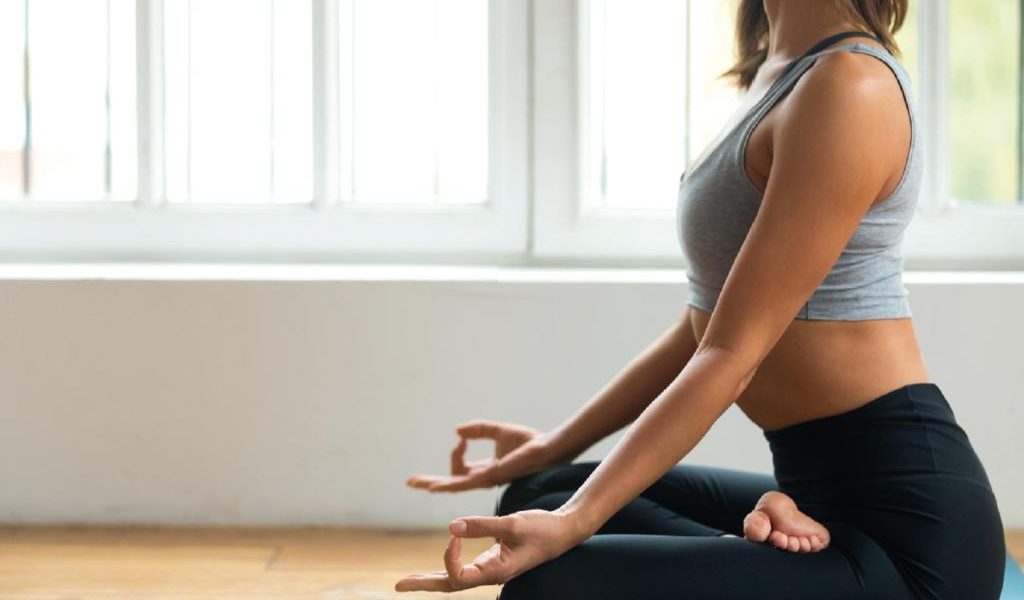It’s your body’s most natural function, but is breathing on autopilot compromising your health? We explore breathwork – the wellness trend that’s bringing a breath of fresh air
What is it?
Breathwork is the term applied to any therapeutic intervention into the way we naturally breathe. Bringing awareness to the breath isn’t a new thing; the Chinese ’qigong’ and Indian ’pranayama’ are ancient practises that harness the health-supporting power of conscious breathing. Contemporary breathwork practitioners create breathing exercises that tackle 21st-century ills: stress, anxiety, musculoskeletal problems, insomnia, lethargy and more. Approaches differ, with breathwork encompassing anything from the kind of deep breathing you might encounter in a yoga session to more intense and consciousness-altering ’holotrophic breathing’ or even ’rebirthing’ sessions. All, however, aim to maximise the potential of every breath we take. “The aim is to have a fuller breath,”says Transformational Breath facilitator Aimee Hartley, who runs breathwork sessions in London (thebreathingroom.co.uk). “Basically that means using more of our respiratory system to breathe well, which has a knock-on effect for every system in your body.”
What does it involve?
Group breathwork sessions might follow a similar format to a meditation class: a relaxing mat-based environment where attendees follow an instructor’s guidance through a set of breathing exercises. One-to-one sessions will have a more therapeutic feel. “People breath the way they live, just as they stand and walk the way they live,” says breathwork trainer Nathalia Westmacott-Brown (first-breath.co.uk). “As a breathwork therapist you look at the whole person: what their physical situation is, but also their psychological and emotional tendencies.”A strong thread through breathwork is releasing past traumas or stress, which can be held as tension in the body. “The body stores the anxiety around the breath and sets up a subventilation pattern,” suggests Nathalia, “whereas if one has a deep sense of safety, the breath tends to open through the whole abdomen. The body is really well designed to self-heal under the right conditions, but the breath is an integral part of that process. The breathwork I practise addresses people’s physical requirements – if they’re asthmatic or have sensitivities around breathing fully – but also their emotional needs.”
Who is it for?
You’re breathing in and out; that’s about as good as it gets, right? Well no, actually. “No-one is breathing as well as they could be,” says Aimee. “There’s always room for improvement. Most people aren’t breathing into their diaphragms properly or, if they are, aren’t breathing into their upper chest well.”All that inefficient respiration can add up to compromised health. “It’s well known that if you’re not breathing fully your physical body starts to reflect that in poor posture,” says Nathalia. “It becomes a circular problem because the posture then constrains the breath.” Like bad posture, poor breathing can imperceptibly impact on your wellbeing, contributing to migraines, respiratory issues, and a host of stress-related conditions. Research even suggests dysfunctional breathing can impact on your body’s ability to regulate the heartbeat under stress.
What are the benefits?
Fans of breathwork speak of the crackle of energy it gives them, and a lifeaffirming sense of physical ease, but the positive effects for the body last beyond this sensory reaction. Studies into the physical benefits of controlled breathing include research conducted in 2005, which found slow and deep breathing lowered blood pressure in hypertension patients. Other studies have explored the positive benefits that deep breathing brings to the body’s blood-sugar management and the resilience of the immune system. The cognitive benefits are also well-documented: last year researchers in Dublin proved a link between breath-focused meditation and attention, finding that conscious breathing releases noradrenaline, a brain chemical that sharpens our focus. Previous research suggests that breathwork can lift severe depression, reduce panic or anxiety, and aid memory recall.
Why does it need an instructor?
“The most obvious thing people say is ’Well, I’m breathing already! Why on earth would I want to pay you to help me breathe?’”says Nathalia. “Actually, it’s paying someone to help bring a consciousness to your breathing process. You could call it ‘breath observation’. Something changes when you consciously intend to breathe; take a deep breath and it links your breath pattern to your psychological and emotional sense of wellbeing and that’s a therapeutic breath; a breath with therapeutic benefits.”
Can I try it at home?
While simple breathwork exercises can be
practised at home, the more immersive forms require expert guidance. “I’d always recommend you look for a teacher who’s fully certified,” recommends Aimee, speaking about the psychotherapeutic forms. “Becoming a Transformational Breath Worker is quite a rigorous process so you’ll be in safe hands, but I wouldn’t recommend you try to practice the breathwork you’ve vaguely heard of, or get someone to teach you what they’ve learnt secondhand.” According to Nathalia, a simple awareness of your breath is a journey we can all take. “There are plenty of simple, mechanical exercises that will have benefits no matter what you think of the psychotherapeutic elements.”In fact, Nathalia’s forthcoming book on the matter – Breathwork, published in December by DK Books – will be full of practical exercises.
Try this
“Slow down your exhale breath so that it’s longer than your inhale, for just two or three breaths. This switches the central nervous system from an active sympathetic state, to a parasympathetic state of relaxation.” Nathalia Westmacott-Brown




















